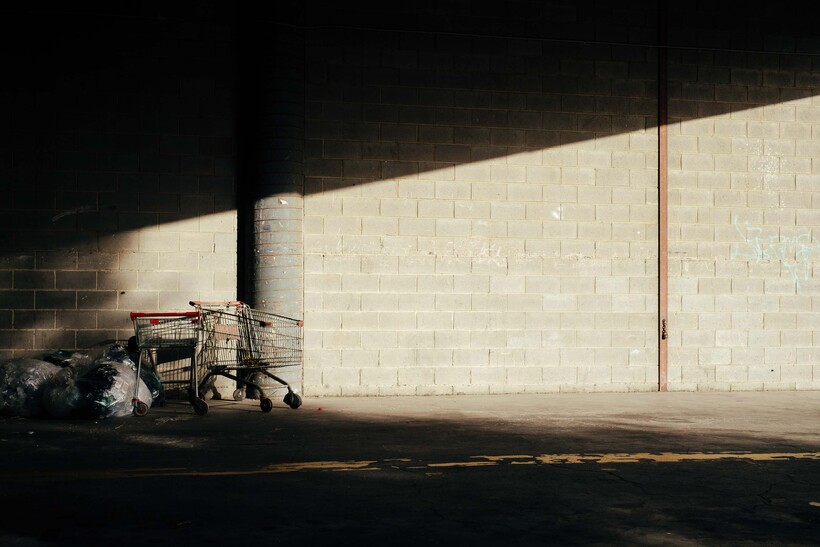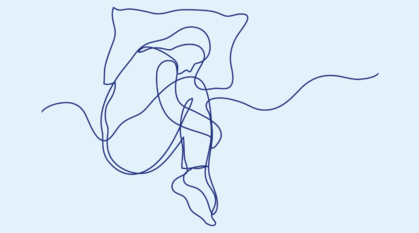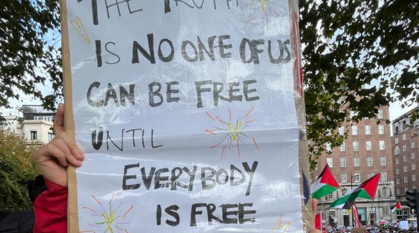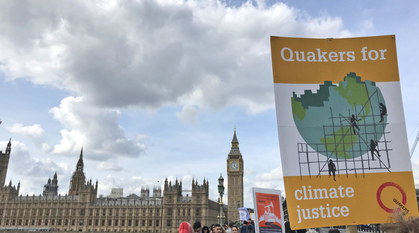Poverty, austerity and choosing a different path
Suzanne Ismail explores why the UN's state of poverty in the UK report reaffirms the work to challenge inequality in Britain.

One piece of news which slipped by largely unnoticed among the political turmoil of the last few months was the release of a UN report on the state of poverty in the UK. In many ways this wasn't unusual. UN reports very rarely have the British press clamouring all over them. But, as the country seems to be inching closer to a no-deal Brexit that gambles "with the basic needs of our poorest citizens and communities", it's more vital than ever that we take heed of its findings.
The report paints a stark picture of a country where, despite being the world's fifth largest economy, poverty has shot up over the course of the last decade. Families are having to make impossible choices about whether to eat or heat their homes; children are showing up at school with empty stomachs, and "schools are collecting food and sending it home because teachers know their students will otherwise go hungry".
It reminds us that over one fifth of our population (some 14 million people) live in poverty. And estimates that another 2.5 million are "just one crisis away from falling into poverty". Women, people from minority ethnic groups (particularly black people and people from a South Asian background), children and people with disabilities have been the hardest hit.
These findings should give us all pause for thought. Both in and of themselves and because they raise some fundamental questions: about how this all came to pass and about the kind of society we are and what we aspire to be.
A steady erosion
The report highlights – in no uncertain, and unusually forthright, terms – that the period of austerity since 2010 has led to the "systematic immiserisation of millions across Great Britain". Echoing many of the points Quakers fed in to the rapporteur's inquiry (.docx), the report shows how many public and community services have been cut to the bone.
Social security cuts, including the cap on benefit payments, the so-called 'bedroom tax' and two-child limit on eligibility for child tax credits were expressly designed to encourage people to 'make the right choices' or 'stop reliance on benefits' by encouraging people into work. To a certain extent this worked; unemployment figures are at their lowest for several decades. But these headline figures can hide an awful lot. The report points out that in-work poverty is now higher than at any time in the last 20 years. One in six people referred to Trussell Trust food banks are in work. Even full time work is no guarantee of a sufficient income to live on.
One of the report's damning conclusions is that "British compassion has been replaced by a punitive, mean-spirited and often callous approach apparently designed to impose a rigid order on the lives of those least capable of coping". It also finds that "much of the glue that has held British society together since the Second World War has been deliberately removed and replaced with a harsh and uncaring ethos".
The politics of austerity haven't just come out of nowhere. Since the late 1970s a succession of policy changes – supported by governments of all hues – have weakened social housing provision, subjected more and more benefits to means testing, cut income and corporation tax rates, eroded the power and traditional role of trade unions while increasing the role of private enterprise in a range of areas from pensions, utilities, education and health provision. These changes were accompanied by a sharp increase in inequality. Today Britain is one of the most unequal countries in the industrialised world.
Building a more equal society
For Quakers both the recent rapid increase in poverty and the wider backdrop of extreme levels of inequality is an anathema. Not just because of the impact that it has on people at the bottom of the income distribution. Or because of the the growing body of evidence that shows that more equal societies perform better on a whole range of social and health indicators. But what it does to our society and our relationships as human beings.
A Quaker statement produced some decades back put it well,
[QUOTE-START]
In such conditions of gross inequality of wealth and power, it will be impossible to create the equality of esteem which we believe sees all human beings as equally children of God.
- From a BYM statement on social testimony, 1997
[QUOTE-END]
That inequality of esteem is, for me, crucial. It is increasingly possible for rich and poor people to lead completely separate lives and have completely different life experiences. This is both a symptom and a cause of inequality, and is a consequence of a series of political choices that have been made. This retrenchment of community has in many cases fostered our perception of difference (be that based on income, race, class, migration status etc.). In such a climate, the most recent round of social security cuts was not just politically possible – but seen by many of our fellow citizens as highly desirable.
But, as a group of Quakers who last year undertook a 360-mile "ride for the common good" in support of the welfare state pointed out, it doesn't have to be that way. 75 years ago – despite the crippling national debt of the Second World War, Britain chose a very different approach; building a welfare state that aimed to protect all of us in case of illness, ill-health, unemployment and other life contingencies. We can then afford to care for each other. But to do so requires political will and a clear anti-poverty agenda.
Our political representatives are currently debating and making decisions that will have a profound effect on the nature of British economy and society for generations to come. It's vital that in the midst of Brexit discussions that we don't lose sight of the urgent need to tackle poverty and inequality.
Find out more about Quaker work on poverty and inequality in Britain


